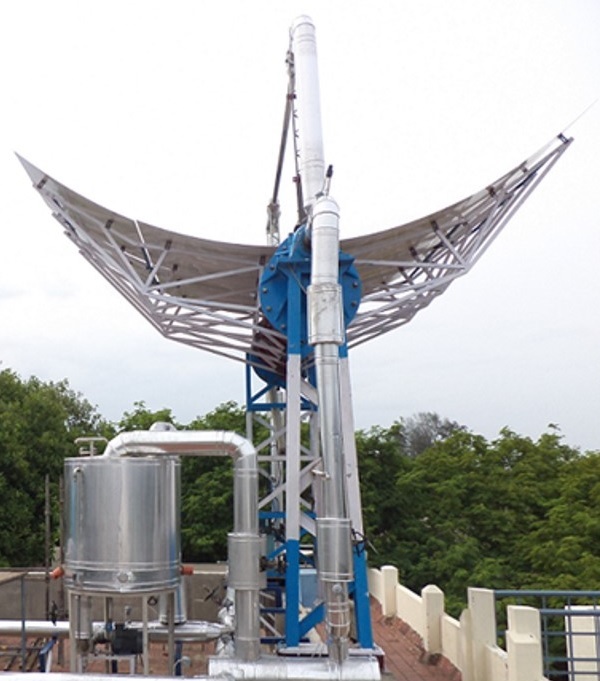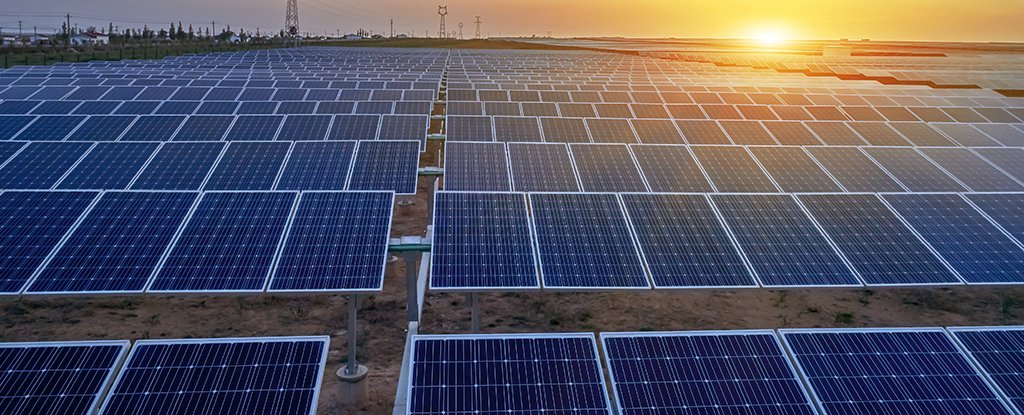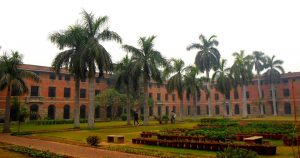Best Books to Read in 2023
Best Books to Read in 2023 Are you a bookworm or a bibliophile, if yes, then this is the ...
IIT Madras research team developed a low cost Solar Parabolic Trough Collector (PTC) system for concentrating solar energy with industrial applications in areas such as desalination, space heating and space cooling, among others.
The research team at IIT Madras was led by Professor K. Srinivas Reddy, Heat Transfer and Thermal Power Laboratory, Department of Mechanical Engineering, IIT Madras with his team member Mr. C. Ananthsornaraj.
 This indigenously designed and developed system by IIT Madras research team is lightweight with high energy efficiency under Indian various climatic and load conditions.
This indigenously designed and developed system by IIT Madras research team is lightweight with high energy efficiency under Indian various climatic and load conditions.
The system can be integrated effectively with various process heat applications. This research can help manufacturers and researchers in solar energy make devices with higher efficiency.
The National Solar Mission was launched with the target of providing 20,000 MW through solar power by 2022.
However, lower rate of energy generation through solar power is a major roadblock in achieving this target. Technologies such as this one developed by IIT Madras researchers can help meet this target.
Speaking about the application of solar energy to meet energy needs Professor K. Srinivas Reddy said solar energy technology is the most propitious technology for clinching sustainability in the energy domain.
 Particularly, Concentrated Solar Power (CSP) technology can meet thermal and electrical energy demands due to its high dispatchability and reliability.
Particularly, Concentrated Solar Power (CSP) technology can meet thermal and electrical energy demands due to its high dispatchability and reliability.
States such as Bihar, Haryana, Madhya Pradesh, Maharashtra and Gujarat, among others, have great potential to harness this energy, which can reduce the combustion of non-renewable and polluting sources of energy such as coal and petroleum, he said.
The research team tested the efficiency of this installed system in terms of optical efficiency and thermal efficiency.
Optical efficiency is the amount of energy which is absorbed by the tube over the total energy received by the collector.
Thermal efficiency, on the other hand, is the heat collected over the heat gain by the system. They found that the optical efficiency of the evacuated system is 72 per cent and non-evacuated system is 68 per cent when the heat loss is minimised.
 Professor Srinivas Reddy who leads the research team at IIT Madras further said they intend to commercialise this product and demonstrate the application of PTC technology with energy storage for sustainable energy solutions in agriculture, food, dairy and industrial process heat sectors.
Professor Srinivas Reddy who leads the research team at IIT Madras further said they intend to commercialise this product and demonstrate the application of PTC technology with energy storage for sustainable energy solutions in agriculture, food, dairy and industrial process heat sectors.
The researchers at IIT Madras further found that the rate at which the heat transfer liquid flows also affected the thermal performance of the system.
When the flow rate of the liquid was higher (0.12kg/second), thermal efficiency was higher (66 per cent for the evacuated system and 64 per cent for non-evacuated system) whereas at the lower flow rate (0.06 kg/second), thermal efficiency was lower (64.3 per cent for evacuated system and 62.1 per cent for non-evacuated system).
Thermal efficiency also varied depending on whether it was sunny or cloudy day. Parabolic Trough Collector (PTC) systems concentrate sunlight onto a small area where it is absorbed and then utilised for heating and subsequently for energy generation.
This system consists of a concentrator/reflector, receiver, supporting structures (pylon, torque tube, mirror supporting arm and receiver support) and tracking unit.
Also read ‘SRM Amaravati student designs cost effective faceshield for protection from COVID-19‘
The concentrator of the parabolic trough collector system receives the solar incident radiation from the sun and reflects it onto the receiver which is placed at the focal line of the PTC system to heat a liquid.
This heated liquid boils water making steam to run turbines and generators for generating electricity. The tubes, which absorb this sunlight from reflectors, have a glass exterior and metal interior holding a heat transfer liquid, which can be molten salt and oil, among others.
To minimise thermal loses, the space between glass exterior and metal interior is maintained at low-pressure conditions, called ‘evacuated receiver system.
About – IIT Madras
Indian Institute of Technology Madras (IITM) was established in 1959 by the Government of India as an institute of national importance.
The activities of the Institute in various fields of Technology and Science are carried out in 16 academic departments and several advanced interdisciplinary Research Academic Centres.
The Institute offers undergraduate and post – graduate programmes leading to the B.Tech., M.Sc., M.B.A., M.Tech., M.S., and Ph.D., degrees in a variety of specialisations.
IIT Madras is a residential institute with more than 580 faculty and 9,500 students. Students from 18 countries are enrolled here.
IIT Madras fosters an active entrepreneurial culture with strong curricular support and through the IITM Incubation Cell.
IITM has been ranked No.1 in the Overall Institutions category in India Rankings 2019 released by National Institutional Ranking Framework, Ministry of Human Resources Development, Govt. of India.
The Institute has also been ranked No.1 in the Engineering Institutions category in the same Rankings for four consecutive years – 2016, 2017, 2018 and 2019.
It was also adjudged as the ‘Top innovative Institution’ in the country in the Atal Ranking of Institutions on Innovation Achievements (ARIIA) 2019 launched by Innovation Cell of MHRD.
S Vishnu Sharmaa now works with collegechalo.com in the news team. His work involves writing articles related to the education... (Full bio)

Best Books to Read in 2023 Are you a bookworm or a bibliophile, if yes, then this is the ...

In the exhilarating journey of 10 Proven Memorize Techniques for Students learning, memory is your trusty companion. Whether ...

Top 20 toughest exams in world is about exams in the world that required very hard work to ...

Top 20 toughest exams in India - Exams are the perhaps most toughest moments for any student. A ...

Top 20 Colleges of DU Getting admissions to the top 20 colleges of DU is a dream for every ...

Top 20 NITs of India - Amongst the 31 NITs in India, today, we are talking ...

Here are the Top 12 Artificial Intelligence in Mumbai. Artificial intelligence (AI) refers to the simulation of human ...

As you stand on the Best Science Courses after 12th academic journey, the realm of science beckons, offering ...
Millions of students have entrusted CollegeChalo to facilitate their seamless and smooth admission process to their dream colleges and universities. With CollegeChalo, you can gain a competitive edge by easily accessing exam and course details to stay ahead of the admission journey. What are you waiting for?
Search your dream college